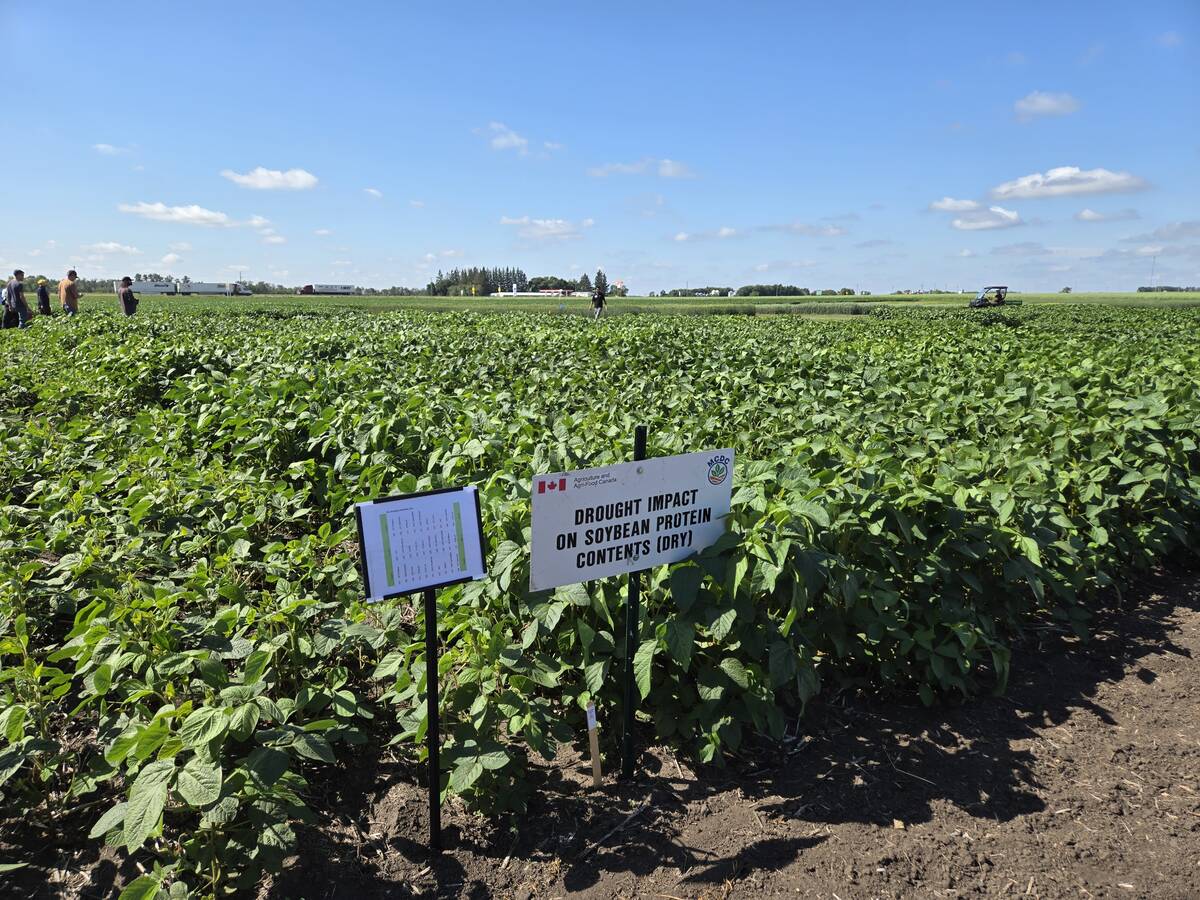The American packing industry will be the loser if Canada succeeds in its plan to expand domestic capacity and cut the flow of live cattle moving south, says a senior official in the packing sector.
Janet Riley, senior vice-president for public affairs at the American Meat Institute, said in a Sept. 13 interview that expansion of the Canadian industry will have a “ripple effect” in the U.S.
“There are plants that depend on Canadian livestock to keep operating and they will be hurt,” Riley said.
Read Also

Carberry field day looks for agriculture solutions
Manitoba farmers explored research solutions for resilient crops, perpetual agronomic issues and new kinds of agricultural products at a field day at the Manitoba Crop Diversification Centre in Carberry on Aug. 6.
“In our view, it is unfortunate it has come to this. We believe the border should have been open long ago. We sympathize with the situation of the Canadians and understand but we’re sorry it has come to this.”
Both prime minister Paul Martin and agriculture minister Andy Mitchell have used meetings in the United States to warn that a prolonged border closure would force Canada to invest in its own packing industry. Such investment would be detrimental to American plants accustomed to a steady flow of Canadian slaughter animals.
Canadian Cattlemen’s Association president Stan Eby said investments in the Canadian packing industry will happen.
“Before BSE, we were shipping 800,000 to a million cattle south,” he said. “Once our capacity is up, I anticipate that flow will be just 20 percent, maybe 200,000 annually.”
Canadian Federation of Agriculture president Bob Friesen said there is already a template for what will happen.
A decade of countervail against Canadian hogs going south for slaughter forced the Canadian industry to find more slaughter capacity in Canada, said Friesen, a Manitoba hog producer.
“Now we are one of the world’s largest exporters and a significant competitor for the U.S.”
At the AMI, Riley said the Americans have only themselves to blame since there is no justification for a prolonged closed border in an integrated North American beef market.
“Americans saying Canadian beef is unsafe is like saying your twin sister is ugly.”














